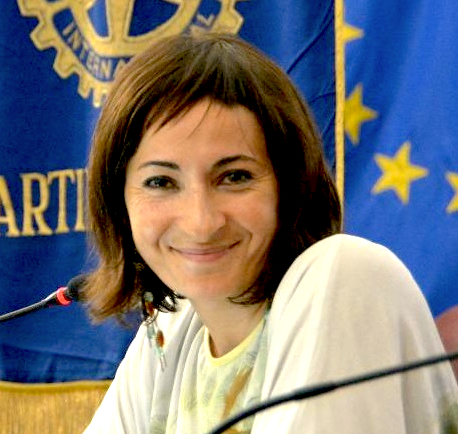Staff Page / Visiting Scholar / Past Member
Erminia Colucci

- Research Departments・Position
- Environmental Coexistence
Visiting Research Scholar - Area
- Visual Anthropology and Psychology
Cultural and Global Mental Health
Cultural Psychiatry
Religion
Refugee studies
- Research Interests / Keywords
- Arts-based and Visual research methodologies
Healing and spirituality
Suicide prevention
- Contact
- e.colucci@mdx.ac.uk
Erminia Colucci
Overview
Visual methodologies in collaborative interdisciplinary research
My multi-disciplinary academic background is in Cultural Psychiatry (PhD, Australia), Visual Anthropology (MPhil, UK), Psychology (BPsySc/Hons, Italy), and Education (PGCert/Diploma, Italy and UK). My applied research and dissemination/public engagement activities focus mainly on Southeast Asia and South Asia, particularly Indonesia, where I am a Visiting Professor (Gadjah Mada University). My main research areas are human rights and mental health, suicide prevention, domestic violence against women and children, spirituality and faith-based/traditional healing, and first-hand stories of people with lived experience of ‘mental illness’ and suicidal behavior. I focus on low-middle income countries and ethnic minorities and refugee populations. I am passionate about using arts-based and visual methods, particularly photography and ethnographic film-documentary and participatory visual methods, in my research, teaching, and advocacy activities. I am the founder of Movie-ment and Co-chair of the World Association of Cultural Psychiatry’s Special Interest Group on Arts, Mental Health and Human Rights.
During my CSEAS fellowship, I will hold seminars and film screenings on a variety of projects that I have led, including Together for Mental Health, a visual research project on the collaboration among faith-based/traditional healers and mental health professionals in Indonesia and Ghana; Breaking the chains, which explored the cultural meanings of a practice of chaining and caging known as pasung in Bahasa Indonesia, and a visual ethnography on gender-based violence in the Philippines.
I will also work on a book proposal on the use of visual methodologies in inter/trans-disciplinary research and complete the second edition of a book on Suicide and Culture (Hogrefe) and a Special issue on Suicide in Asia and the Pacific.
I will use this fellowship to start developing a new area of research, i.e. the historical and contemporary roles and meanings of pilgrimages in Asia. I will create and potentially pilot a methodology for my first exploratory visual ethnographic research on pilgrimages by undertaking the Shikoku pilgrim trail by foot. These new conceptual and methodological developments will inform future research on pilgrimages in Southeast Asia and other parts of the world.
During my CSEAS fellowship, I will hold seminars and film screenings on a variety of projects that I have led, including Together for Mental Health, a visual research project on the collaboration among faith-based/traditional healers and mental health professionals in Indonesia and Ghana; Breaking the chains, which explored the cultural meanings of a practice of chaining and caging known as pasung in Bahasa Indonesia, and a visual ethnography on gender-based violence in the Philippines.
I will also work on a book proposal on the use of visual methodologies in inter/trans-disciplinary research and complete the second edition of a book on Suicide and Culture (Hogrefe) and a Special issue on Suicide in Asia and the Pacific.
I will use this fellowship to start developing a new area of research, i.e. the historical and contemporary roles and meanings of pilgrimages in Asia. I will create and potentially pilot a methodology for my first exploratory visual ethnographic research on pilgrimages by undertaking the Shikoku pilgrim trail by foot. These new conceptual and methodological developments will inform future research on pilgrimages in Southeast Asia and other parts of the world.
